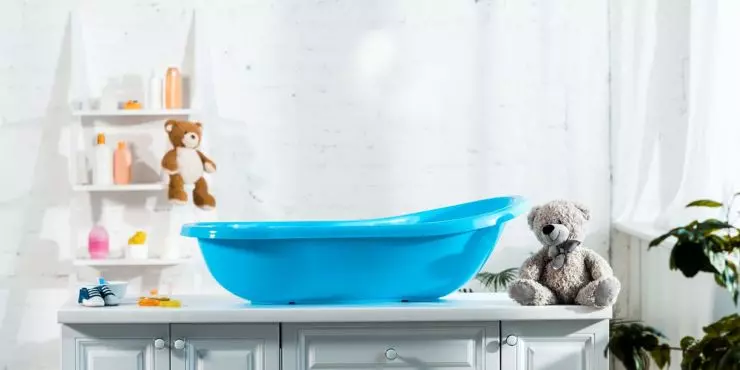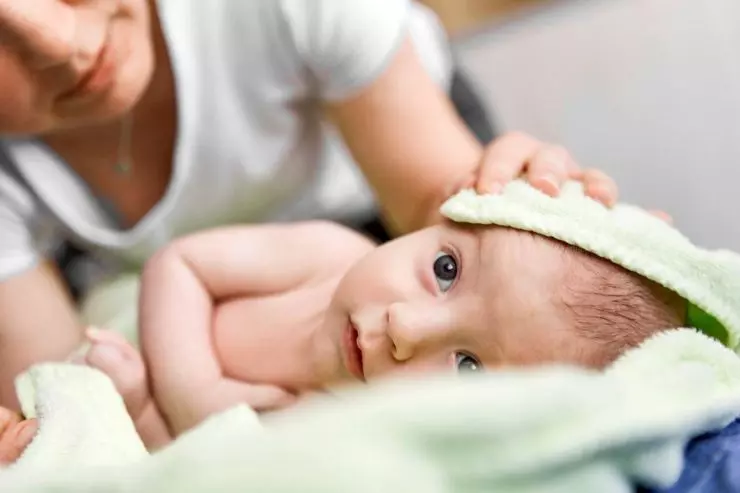
Welcoming a newborn into your family is an incredible experience, filled with joy, excitement, and, admittedly, a few anxieties – like bathing your little one for the first time. As family doctors and many of us being parents as well, we definitely understand the concerns new parents have. Therefore, we have put together a simple guide to help you feel confident and secure when bathing your newborn.
Everything You Need to Know About Bathing Your Newborn
Timing is Key
You don't need to bathe your newborn every day. One to three times per week is enough to keep them clean. Your newborn should not receive their first traditional bath until the umbilical cord stump falls off and heals. This typically happens about 10 to 14 days after birth, so it’s best to stick to sponge baths using a soft, damp cloth or sponge during Baby’s first couple weeks of life. Gently wipe and clean your baby, particularly the diaper area, face, and any creases or folds in the skin.
Preparation Matters
Gather all the necessary supplies before you start. Remember, you should never leave your baby unattended so by planning ahead you will have everything right where you need it.
Supplies to have prepared:
- A baby bathtub or a clean, small basin.
- Warm water (test it with your wrist or elbow to ensure it's not too hot; it should be about 98.6°F or 37°C).
- Mild baby soap (optional for very young newborns).
- Soft washcloth.
- Cotton balls or soft thin washcloth (for cleaning the eyes and face).
- Clean towel, preferably with a hood.
- Moisturizing lotion (optional and should be safe for infants)
- Fresh diaper and baby clothes.
Choosing Products
For bathing your newborn, it's important to use a soap that is gentle, mild, and specifically designed for babies. Look for soaps that are labeled as "mild", "gentle", “for babies”, “newborn safe”, or “hypoallergenic.” These are less likely to irritate your baby's sensitive skin. It’s also best to look for fragrance-free on the label, as fragrances can sometimes cause irritation or allergic reactions in newborns.
Take a look at the ingredient label and avoid products that contain things like parabens, phthalates, and sulfates. Baby soaps should also be pH-balanced to suit the sensitive skin of a newborn. The skin's natural pH is slightly acidic, so a pH-balanced soap helps maintain the skin's natural barrier.
Remember, every baby's skin is different, and what works well for one might not be the best for another. It's always good to observe how your baby's skin reacts to a new product and switch to a different one if necessary.
Choose the Right Spot to Bathe Your Baby
Prepare the bath:
- Choose a safe, flat surface to place the baby bathtub on.
- Make sure the room is warm to prevent your baby from getting cold.
- Fill the baby bathtub with about 2-3 inches of water.
- Undress your baby, but keep them wrapped in a towel to prevent them from getting cold.
- Gently place your baby in the bathtub feet first, using one hand to support their neck and head.
Water Temperature
Use warm water, not hot. Test the water with your wrist or elbow – it should be comfortably warm. The ideal temperature is about 98.6°F.
Gentle Washing
Support your baby's head and body and begin to bathe them.
- Use a thin, gentle washcloth to gently wash your baby's face first. Use cotton balls for the eyes and ears. Never put q-tips into your baby’s ears.
- Then, using a little soap and the washcloth, gently wash the rest of your baby's body. Start from the top and work your way down.
- Be sure to clean the creases of the skin under their arms, the diaper area, etc.
- Keep pouring warm water gently over your baby's body to keep them warm.
Rinsing, Drying, and Dressing
Rinse your baby with a clean washcloth, making sure no soap residue remains. Then, wrap them in a towel and pat them dry. Be sure to dry in the creases of their skin. Once they are dry you can put a thin layer of lotion on their skin, if desired, and then put on a clean diaper and dress them.

Safety First
Never leave your baby alone in the bath, not even for a second. If you need to leave the bathroom, wrap your baby in a towel and take them with you.
Bonding Time
Bath time can be a great way to bond with your baby. Talk, sing, and gently play with your baby as you bathe them. Also be sure to give plenty of extra kisses and cuddles.
Skin Care Post-Bath
If your baby’s skin is dry, you might use a fragrance-free baby moisturizer. Avoid lotions with dyes or scents.
Remember, Every Baby is Unique
It’s important to realize that every baby is unique and this will make bathing a unique experience for each parent and baby. It might take a few tries to figure out what works best for you and your little one. Enjoy these precious moments!